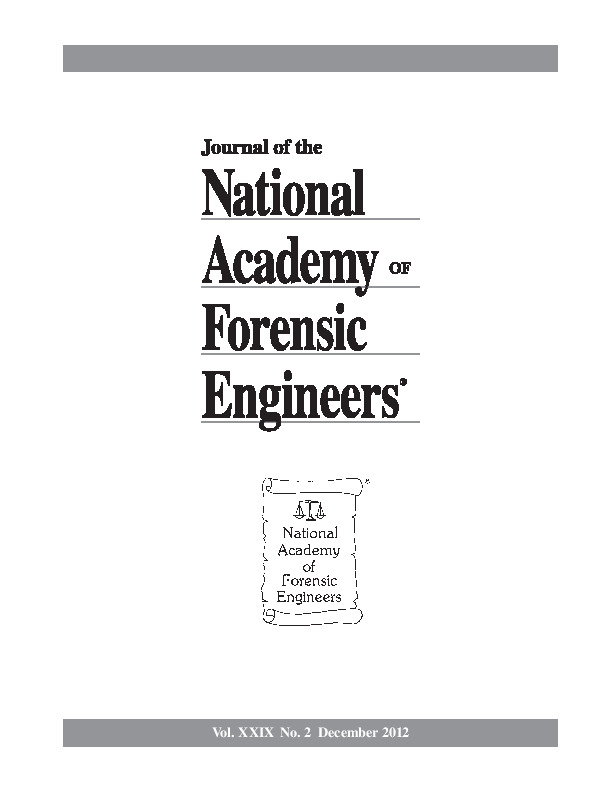Forensic Engineering Minimally Invasive Testing For Water Intrusion Using Infrared Technology
DOI:
https://doi.org/10.51501/jotnafe.v29i2.775Keywords:
Infrared thermography, deconstruction, water intrusion, hidden damage, IR surveyAbstract
Infrared Technology Is Gaining Popularity In The Identification Of Water Intrusion Damage To Building Wall Systems Due To Its Ability To Pinpoint The Exact Locations Of Anomalous Conditions That May Be Indicative Of Damage Without Wholesale Deconstruction. However, The Common Method Of Utilizing Infrared Technology To Identify This Water Intrusion Damage Relies Entirely On The Ability Of The Thermographer To Correctly Identify This Damage Without Any Verification As To The Accuracy Of These Findings. The Approach Proposed Herein To Identify The Extent Of Water Intrusion Damages To Wood Frame Structures Incorporates A Program Of Infrared Imaging Combined With Limited Destructive Sampling. By Mapping The Entire Structure Using Infrared Imaging, Or Thermography, The Thermographer Is Able To Identify The Areas Within The Exterior Surface Of The Subject Structure Evidencing Atypical Temperature Variations. Once Identified, These Temperature Variations, Or Thermal Patterns, Are Assessed Using A Knowledge Of Wood Frame Construction, Experience In The Identification Of Water Intrusion, The Science Of Thermography, And Selective Destructive Sampling. Once Assessed, These Thermal Patterns Are Categorized As Either Indicative Of Underlying Damage Or Otherwise. Utilizing This Approach, The Thermographer Is Able To Accurately Identify The Extent Of Water Intrusion And/Or Related Damage And Thereby Provide Accurate Findings While Eliminating The Need For Wholesale Deconstruction.Downloads
Published
2012-01-01
How to Cite
Bracken, William C., Tuomy Blake, and Robin J. Davies. 2012. “Forensic Engineering Minimally Invasive Testing For Water Intrusion Using Infrared Technology”. Journal of the National Academy of Forensic Engineers 29 (2). https://doi.org/10.51501/jotnafe.v29i2.775.
Issue
Section
Articles
License
Copyright (c) 2012 National Academy of Forensic Engineers

This work is licensed under a Creative Commons Attribution-NoDerivatives 4.0 International License.
All rights © Journal of the National Academy of Forensic Engineers.
Full statement regarding the author's license of copyright to the NAFE is shown on the Copyright section of the Submissions Page.






